When Will MINUSTAH Leave Haiti? The UN “Destabilization Mission”
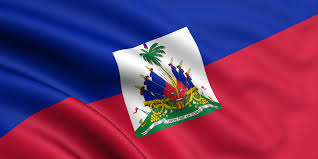
A reevaluation of the withdrawal of the United Nations (de)Stabilization Mission, MINUSTAH, from Haiti will be discussed at a September 16, 2015 meeting of the UN Security Council (UNSC). This will be a working meeting of the 15-member UNSC with the ambassadors of the MINUSTAH troop contributors: Brazil, Chile, Uruguay, Argentina, Guatemala, Ecuador, Bolivia, Colombia, El Salvador, Honduras, Paraguay, Peru, Nepal, South Korea, Sri Lanka, the Philippines, Jordan, and Indonesia.
This meeting was announced on September 2 at the presentation of the UNSC September 2015 program by Russia’s Permanent Representative to the UN, Mr. Vitaly Churkin, who had just assumed the rotating presidency of the UNSC.
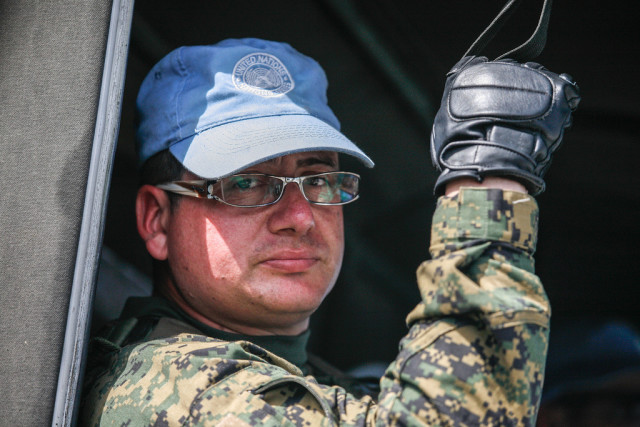
Photograph by Alex Proimos
Haiti’s UN- and US-installed President, Michel Martelly, and his Ambassador to the UN, Denis Régis, have asked the UNSC to reassess its decision last October 2014 to withdraw, within a year, one half of the UN troops from the country. These troops have become superfluous since the UN and the US private military and security company (PMSC) DynCorp have already trained a local force of more than 14,000 paramilitary police; in addition, Ecuador has trained an army loyal only to Martelly. Nevertheless, the current regime is begging the UNSC to prolong MINUSTAH’s stay until after the installment of a new regime in February 2016; it warns that there will be an electoral crisis even as it incites one jointly with the UN Development Program (UNDP), which is financing the 2015 electoral debacle.
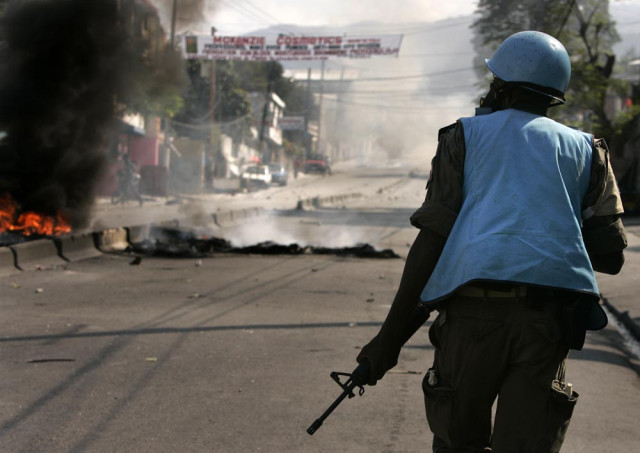
Photograph by United Nations Photo
Haiti, however, no longer appears to be the comfortable venue where MINUSTAH member countries could practice warfare, without risk, on an unsuspecting population. Indeed, the country seems to have become quite dangerous for high-level foreign police and military. A Vietnam war veteran and supposedly retired diaspora Boston police officer, Yves Dambreville, was shot dead in Port-au-Prince on August 23. One week later, the most recent MINUSTAH commander, the Brazilian Lieutenant General José Luiz Jaborandy Jr. died, presumably while he was on an airplane to Brazil.
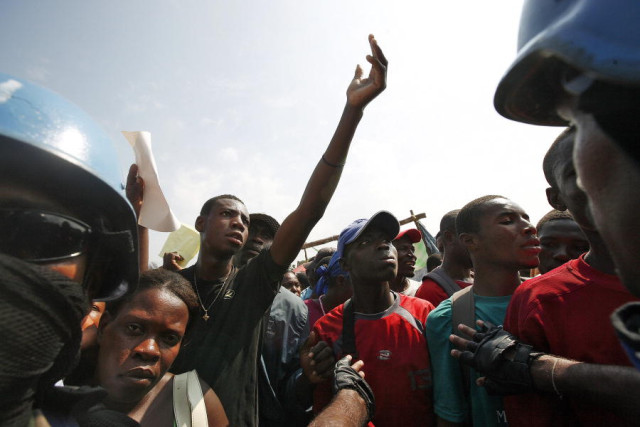
Photograph by United Nations Photo
About 500 Argentinian soldiers left Haiti in spring 2015. The Argentinian withdrawal began, not only as its politicians’ rhetoric heated up against oil drilling in the Malvinas/Falklands but also after less than two weeks had passed since a MINUSTAH soldier, the Chilean Sergeant Rodrigo Sanhueza, was shot dead in a moving vehicle on April 13, 2015 by what appeared to be Haitian fighters. Haiti, which enjoyed the lowest crime rate in the Caribbean before MINUSTAH’s arrival in June 2004 to serve as a Praetorian Guard for US-installed regimes, is now full of weapons. The new Cacos evidently do not even have to buy their own. As an example, on August 4 in broad daylight, seven Haitians disarmed two members of an army post in El Embalse, Pedernales, of their M16 assault rifles.
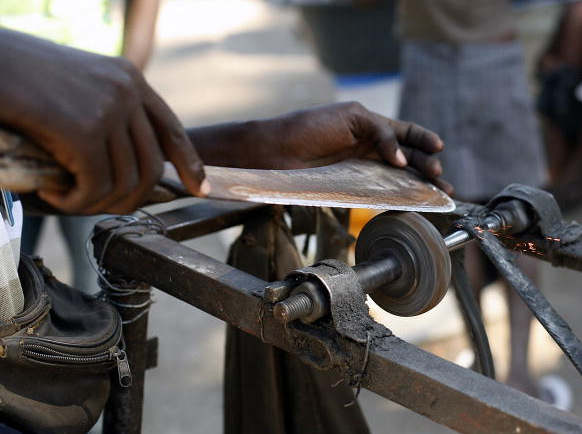
Photograph by United Nations Photo
As Niccolo Machiavelli wrote in The Prince: “The fact is, [mercenaries] have no other attraction or reason for keeping the field than a trifle of stipend, which is not sufficient to make them willing to die for you. They are ready enough to be your soldiers whilst you do not make war, but if war comes they take themselves off or run from the foe….”
Dr. Dady Chery is a Haitian-born journalist, playwright, essayist, and poet. She is the author of “We Have Dared to Be Free: Haiti’s Struggle Against Occupation.” Her broad interests encompass science, culture, and human rights. She writes extensively about Haiti and world issues such as climate change and social justice. Her many contributions to Haitian news include the first proposal that Haiti’s cholera had been imported by the UN, and the first story describing Haiti’s mineral wealth.

